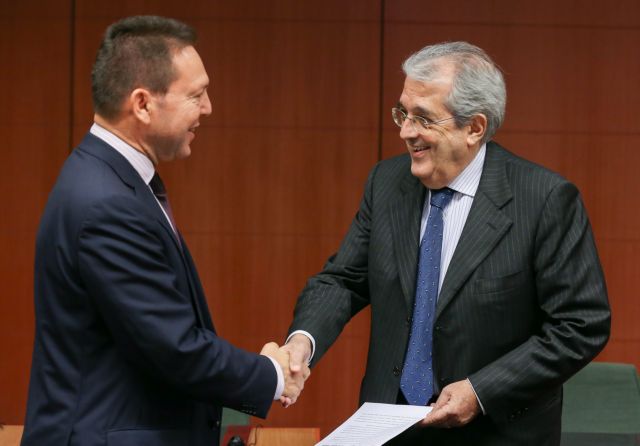After a series of delays the Euro Working Group and Eurogroup in Brussels approved the Greek plan for the restructure of the domestic defense industries, paving the way for the collection of the 1 billion euros of the loan installment that was owed to Greece from July.
The collection of the loan installment had already been approved by the Board of Directors of the European Stability Mechanism in Luxemburg, with the ESM chief Klaus Regling recognizing that Greece has made impressive progress in its reforms, which he believes will contribute towards growth in the midterm.
Stournaras on EAS and the troika’s return
The Minister of Finances Yannis Stournaras expressed his satisfaction with the approval and reported that a “difficult phase” for Greece was over. Mr. Stournaras explained that the prior actions were “unprecedented”, especially with regards to EAS, and praised the coordination of all ministries. The Minister stated that the deal fully covers the needs for national defense while being compliant with the competition regulations.
According to the plan, EAS will operate three of its factories until the end of 2014 – when it will be evaluated – and will have the capability to export its products. The plan also involves splitting the company into civil and military operations, with the civil side being liquidated immediately. Of the 800 current employees only about 500 will remain.
Mr. Stournaras revealed that the troika will return to Athens between the 10th and 20th of January, so that a deal can be reached before the Eurogroup scheduled for the 27th of January. This deal concerns the next loan installment, which is worth 4.9 billion euros. While Mr. Stournaras asserts that there is a convergence on almost all issues related to this fourth review, he admitted that a lot remains unresolved.
The Eurogroup president Jeroen Dijsselbloem expressed his satisfaction with the development of the negotiation and was pleased to report that Greece fulfilled its obligations in this third review. These obligations included the suspension of 12,500 civil servants, implementing reforms in utilities that are to be privatized and updating the lawyer code.



